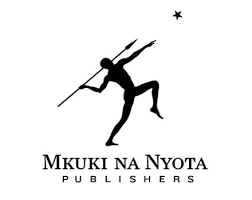
What does it mean to decolonise publishing?
This video and transcribed text below came from Walter Bgoya’s 2021 keynote speech at University of Cape Town, South Africa. Walter is a publisher of more than 50 years, and founder of Mkuki naNyota, an indigenous publisher in Dar e Salaam, Tanzania. He is former Chairman of Africa Books Collective (ABC), and is one of the successful pan-African publishers and a publishing intellectual.
Cite as: Bgoya, W. (2021). Limitations to what an African publisher could do if money were not a problem. https://youtu.be/NiOG03HcsTw?si=9_k0u235x-lGuvPt
These words decolonizing and so on, at some point may sound like just words but they’re not just words, they’re very serious ideas and concepts. Let me put it this way, most of the books being consumed in Africa are not from Africa. The languages that are taught and used to teach our people are not African languages and so our languages are not developing. Are we assuming that all our populations are going to speak English or French or whatever, not realizing that this is absolutely not possible and if it were possible, it would be a disaster because we would have lost ourselves and would have been subsumed this kind of weird English people or whatever I don’t know. So, to decolonize is to become ourselves, to return to the source, to who we are and to define ourselves, who we are now. I am an African okay. This is one thing we must understand and accept and work to realize and what does it mean to be, it means to look at our own value systems our own culture. It does not mean to exclude important knowledge or whatever we can get from outside but we want to give just as we take. For others to take from us, what start is for us to give and we can only give if we think for ourselves, if we create for ourselves. In other words, the focus of our thinking is our interests, African interests look at the past to see what went wrong, rehabilitating Africa from the ravages of slavery of colonialism and by struggling against imperialism that’s right here today, that’s it. Now, you people who are doing research you, will have very beautiful words to say about this one somebody has called the unintelligible intelligibility of intellectual work which now seems to be the conditions for acceptance and great work in other words if people don’t understand it that’s a very good work, well you know you can get lost in that. But our reality is there, you see, go to the village. See how we mimic the west, how we abandon our own values, I’ve been trying to grapple with your Afropolitan idea. I’m trying to understand it, you know, but it’s interesting but it’s fraught also with a whole lot of questions. All I’m really saying is that we have a responsibility to our continent to our people to become who we want to become not what others want to make us to become maybe that can answer the question. Thank you very much.
Walter Bgoya’s 2021
Use the form below to subscibe to Owia Bulletin.
Discover more from Africa Social Work & Development Network | Mtandao waKazi zaJamii naMaendeleo waAfrika
Subscribe to get the latest posts sent to your email.



